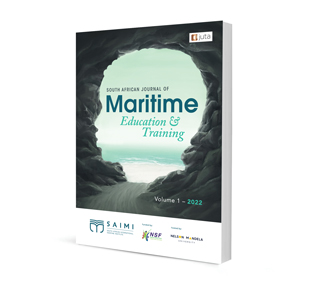What Skills and Capacity Building Interventions are Required to Grow the South African Aquaculture Sector?

What Skills and Capacity Building Interventions are Required to Grow the South African Aquaculture Sector?
Authors Keagan Halley and Andrea Bernatzeder
ISSN: 2790-783X
Affiliations: Aquaculture advisor Operation Phakisa Aquaculture Delivery Unit, DFFE; Director Aquaculture Research, DFFE
Source: South African Journal of Maritime Education and Training, Volume 1 Issue 1, p. 41-52
https://doi.org/10.47348/SAJMET/2022/i1a5
Abstract
Aquaculture is a knowledge- and technology-driven sector that requires a diversity of skills. Such skills are often demonstrated by professionals, including those of veterinarians, biologists, oceanographers, chemists, economists, managers, engineers, artisans, environmentalists and researchers. Since the sector is still fairly small in South Africa, a limited number of institutions provide aquaculture training and their primary focus is on tertiary education. Extension support is also limited in terms of state extension officers, veterinarians and researchers (government does not have the capacity to service the entire sector) and there is little awareness of aquaculture farming as a career and education option. In 2017, a thorough skills inventory and needs analysis of the sector was conducted, led by the South African International Maritime Institute (SAIMI) and the current Department of Forestry, Fisheries and the Environment (DFFE).1 These research efforts were aimed at identifying the shortfalls and future needs in terms of skills and education and training, as well as determining the current age representation and race participation in the industry. Data collection was conducted using interviews and focus groups. The study identified scarce skills and existing gaps, such as supervisory and management skills for middle and senior managers in the sector. Increased awareness of learnerships and funding opportunities through the Sector Education Training Authority (SETA) was flagged.